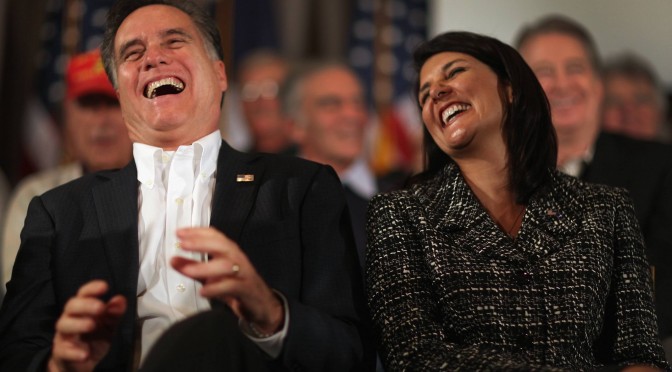Mitt Romney, the presumptive Republican presidential nominee, may have tilted at the wrong wind turbines when he said he would allow wind energy tax credits to expire.
The incentive for erecting wind turbines is very popular in Iowa and other Midwestern states that are harnessing the wind power of the prairie zephyrs.
Iowa is especially big on wind energy. This state is ranked No. 2, behind only Texas, in wind farm generation capacity, and it employs more people than any other state building and maintaining wind towers and wind turbines. Indeed, Gov. Terry Branstad and the entire congressional delegation heartily support the wind power production tax credit and want it extended.
MidAmerican Energy wind turbines in Adair County (near the Rolling Hills site but not part of that expansion). (Photo provided by MidAmerican Energy)
Just because an industry is good for some states does not mean Congress should continue to favor that industry in the federal tax code. But there are good reasons why the tax credit should be extended for as long as necessary to get wind energy production to the point where it is competitive with other forms of energy production.
It makes sense to use the tax code to encourage investment in wind power, which has many things going for it. Wind is a renewable source of energy, and it causes no harm to the environment to harness its power to turn generators and produce electricity. Any movement away from burning fossil fuels to generate electricity — namely coal and natural gas — should be encouraged.
Meanwhile, the government should encourage research into developing an efficient way to store electricity generated by wind, and it should push the power industry to replace and expand the aging power grid. This nation desperately needs additional capacity to move electricity, including wind-generated, from where it is created to where it is needed. Resolving those issues will do as much or more than tax credits to encourage wind generation capacity in this country.
A campaign spokesman told the Register’s Jennifer Jacobs that Romney wants to end “stimulus boondoggles and create a level playing field on which all sources of energy can compete on their own merits.”
Wind energy tax credits were not created to stimulate the economy but to stimulate development of a renewable source of energy. The “level playing field” argument is fair, but only as far as it goes. The playing field is uneven now in large part because of more than a century of investment in exploration and infrastructure made by consumers who pay utility bills to companies that use coal, natural gas and nuclear fuel.
The federal government has long subsidized those traditional energy producers, whether the subsidies are counted as tax breaks, credits or direct spending. The oil and gas industry has since 1916 enjoyed tax breaks to offset the expense of exploring and developing domestic oil and natural gas supplies. Congress created the equivalent of a subsidy for the nuclear power industry in 1957 with the Price-Anderson Act that limits the industry’s financial liability in case of a nuclear accident, and it continues to pay for nuclear power research.
Tax breaks and spending on energy development cost the U.S. treasury $24 billion in 2011, according to a March report by the Congressional Budget Office. Of that, $2.5 billion went to fossil fuels and $2.1 billion went to wind, solar and geothermal energy. A major difference, the CBO report noted, is that while tax credits for renewables have been approved for limited periods, and often are allowed to expire, the tax preferences for fossil and nuclear fuel producers are permanent.
The federal tax code is riddled with breaks for all types of businesses, and Congress should eliminate some of them to bring in more revenue. But it makes sense to continue giving financial incentives to industries that develop clean energy and lessen our reliance on finite natural resources. That includes wind.
http://www.desmoinesregister.com


